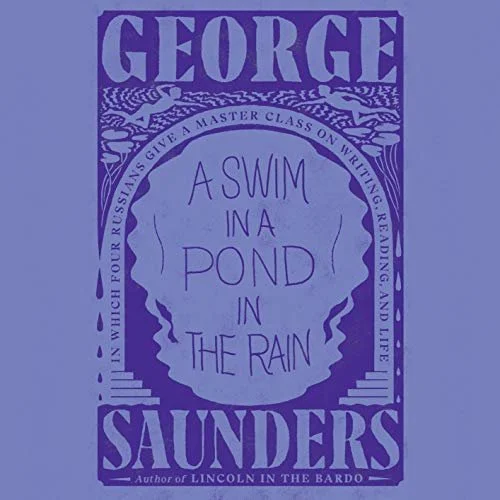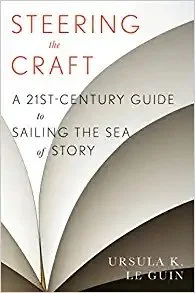Fiction for Poets
in which one poet writes to other poets about writing fiction
I’ve been a poet for more than 30 years. Actually, I’m pretty sure poets are born, not made – so I’ve probably been a poet since before I could even form words, and I think that’s true of anyone who is willing to publicly declare themself a poet. Anyway… I published poems in grade school and high school. I studied poetry in college and grad school. I’ve written two poetry manuscripts. So, yes, poet. The last time I even considered writing a novel was when I was in the 8th grade, and I filled two marble copy books with stories about my imaginary boyfriend. (Insert photo of me hiding behind my hands.)
But somehow in January 2021, I started writing a novel. The how and why of it are not dissimilar to the how or why of writing poems – at least for me. I’ve got emotional garbage to process; words start flashing through my brain to help me along. Only this time, the words didn’t come like they usually do – in fragments and images – they came as fully imagined scene. It was one of the clearest things I’d ever seen in my brain, so I pulled myself up off the floor (literally), grabbed my computer, and started writing.
I had no idea what I was doing or what it would become, but in the year and half since then I have written a novel, and I’m expecting to publish it next Spring. The path hasn’t been easy, and I genuinely believe that writing fiction (or any longer creative prose) is different for poets than it is for those who use prose as their primary vehicle. Over this year, I’ve thought a lot about what makes it different. What are the challenges we face as poets? What are the things we don’t know – or that may not come naturally – if we haven’t practiced writing fiction? What are the things that we do know without realizing? And, perhaps most important, what are the particular strengths that we, as poets, bring to the art of fiction?
I’m grateful to the Mad Poets for giving me an opportunity to explore these ideas, share my lessons learned, and expand this discussion through this regular blog feature. In future posts, I’ll write about how I’ve come to peace with the idea of plot, my favorite thing about writing characters, and how I referee the battle between my poet brain and my novel brain.
I’d like to begin by recommending two books that I have found both helpful and engaging:
A Swim in the Pond in the Rain, by George Saunders, is a book based on a course that Saunders taught at Syracuse University in which he takes several classic Russian short stories and analyzes how they work. It’s not nearly as academic as it sounds. In fact, the thing I love about Saunders is that he is accessible, engaging, and just plain likable. If you’re so inclined, I recommend the audio version of this book because it includes actor narrators for the stories, followed by Saunders himself reading his own analysis/discussion parts. What’s more, beyond learning a ton about the craft of fiction, I was really surprised to find how much I liked these old Russian shorts. (Aside: if you haven’t read George Saunders’ fiction, you should.)
Steering the Craft, by Ursula K. LeGuin, is your more typical writing “manual,” with chapters on different elements of craft like point of view, narration, verbs, etc. This book includes clear examples and really helpful exercises. I used it often in an undergraduate Intro to Fiction class I taught this past Spring, and even the most “basic” lessons were really valuable to me as I was exploring new ways of moving through fiction. Like Saunders, this book also has an accessible tone – read: not pompous or pretentious – which I really appreciate because I hate when I feel like an author is just trying to prove how smart or talented they are. This is a great, easy reference to have on hand if you feel stuck, you want some pointers, or you’d like an exercise to help practice some particular element of fiction.
Lastly, if you want to write fiction, the best, easiest thing you can do is read fiction.
Duh, Autumn, of course!
We always say this: “If you want to be a good writer, you need to be a good reader.” But I didn’t realize how much I intuitively knew about fiction until I started writing it. I have read enough that I can feel when my pacing is good – or when it isn’t. I have a good sense of how to begin and end a chapter – even if I’m still not sure what my editor means when he comments, “This is good, all chapter comps are here.” (Components? Compositions? Comparable properties? Who knows… apparently I’m doing something right, and I’ll take the win.) And I know how to build characters, get in their heads, and move them through different situations. No one really taught me this; I didn’t go to those workshops in grad school. But my reading has given me the education I need.
Now I ask: what do you need? If you’re a poet out there, writing fiction or thinking about writing fiction: what do you want to know? What questions do you have? Thoughts? Feelings? Reservations? What do you want out of this conversation? Because that’s what I’d like this feature to be.
Please drop your thoughts in the comments. Or email me: autumn@autumnkonopka.com.
Autumn Konopka is a writer and teaching artist who enjoys coffee, running, and reggaeton. She's currently working on her first novel, which she expects to publish in early 2023. Find her online: autumnkonopka.com.




